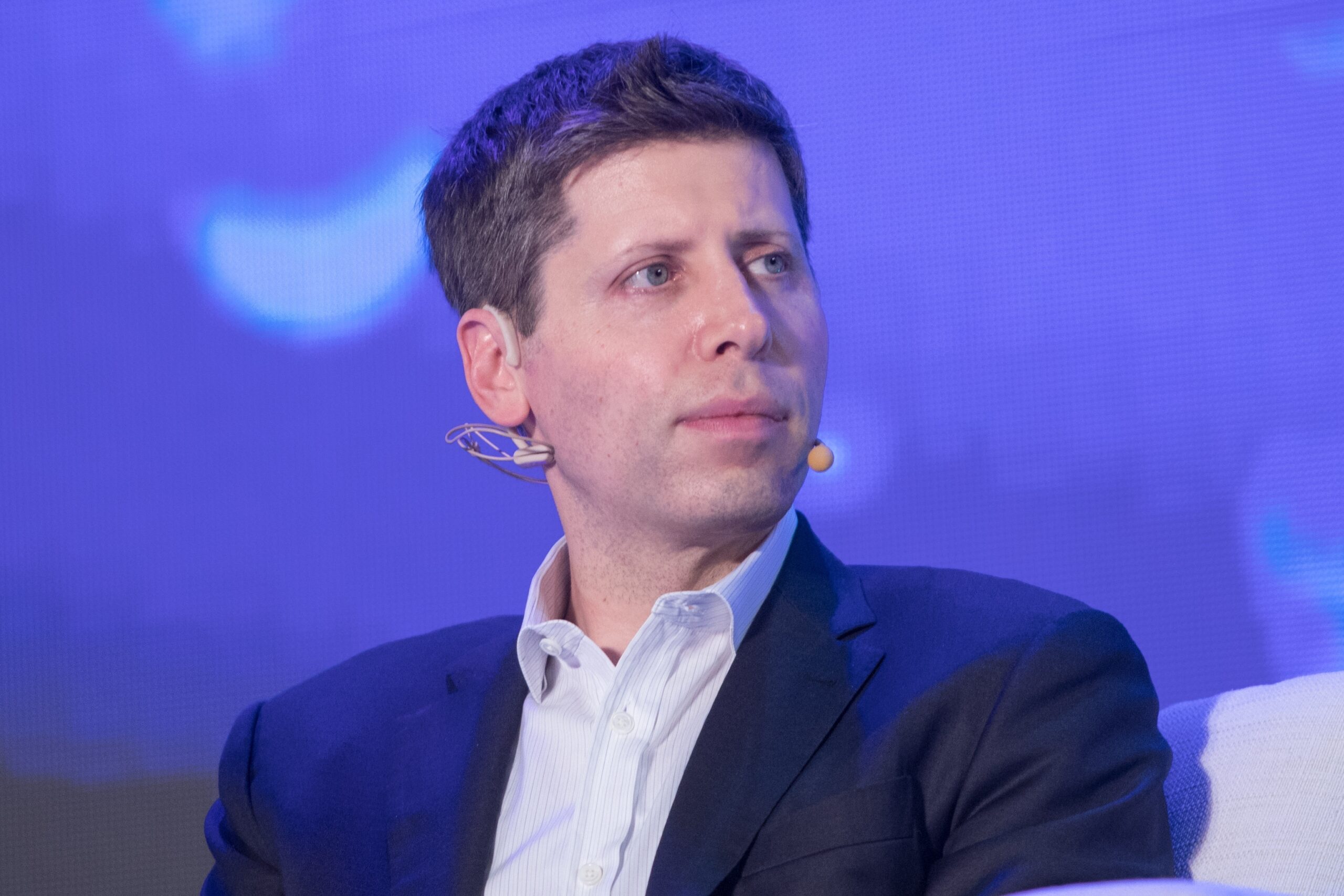Altman & Ive UNVEIL AI Future – Apple Stunned

OpenAI’s $6.5 billion acquisition of Jony Ive’s AI startup signals a major shift in technology that could leave Apple scrambling to catch up in the AI revolution.
At a Glance
- OpenAI is acquiring io, an AI device startup founded by former Apple design chief Jony Ive, for approximately $6.5 billion
- The partnership aims to create “screenless” AI devices that could revolutionize how we interact with technology
- Their first product is expected in 2026, with OpenAI planning to ship 100 million units faster than any previous new product
- Apple’s stock dropped following the announcement, highlighting investor concerns about this new competitive threat
- The move comes as Apple struggles with design team departures and challenges in AI development
A New Tech Alliance Threatens Apple’s Dominance
In a strategic move that has sent shockwaves through Silicon Valley, OpenAI is acquiring Jony Ive’s AI hardware startup io for nearly $6.5 billion. The acquisition brings together OpenAI CEO Sam Altman with Ive, the legendary designer behind Apple’s most iconic products including the iPhone, iPad, and Apple Watch. This powerhouse collaboration aims to create an entirely new category of AI-powered devices that could potentially leapfrog current smartphone technology and challenge Apple’s dominant position in consumer hardware.
The deal represents OpenAI’s largest acquisition to date and signals a significant expansion beyond software into consumer hardware. Ive, who left Apple in 2019 after nearly three decades, will take on a major creative and design role at OpenAI. The partnership intends to develop devices that move beyond traditional screens and create more intuitive and seamless interactions between humans and artificial intelligence.
The Screenless Future of Personal Technology
The first product from this new collaboration is expected to debut in 2026. Reports suggest it will be a “screenless” AI companion designed to be aware of its surroundings and assist users in ways current devices cannot. Unlike smartphones and computers that require constant visual attention, this new device category aims to blend more naturally into daily life while providing powerful AI capabilities. OpenAI is setting ambitious targets, aiming to ship 100 million units faster than any company has done with a new product category.
This AI-first approach stands in stark contrast to the incremental updates that have characterized smartphone development in recent years. By focusing on creating devices built around artificial intelligence rather than adapting AI to existing hardware platforms, OpenAI and Ive are betting they can create experiences that make current technology seem outdated. The new device reportedly will offer seamless, intuitive interaction without requiring users to stare at displays throughout the day.
Apple Faces Its “Biggest AI Crisis Yet”
The timing couldn’t be worse for Apple, which has faced criticism for falling behind in AI development. News of the OpenAI-Ive partnership sent Apple’s stock downward as investors considered the competitive implications. The Cupertino company has recently experienced a troubling exodus of design talent following Ive’s departure and has struggled to match competitors in artificial intelligence capabilities despite its massive resources.
Apple is reportedly planning to release smart glasses similar to Meta’s by late next year and will be showcasing a major AI announcement at its upcoming Worldwide Developers Conference (WWDC). The company is also undergoing significant changes to its App Store, which generates approximately $100 billion annually. Adding to Apple’s challenges, former President Trump has threatened to impose a 25% tariff on smartphones, which could significantly impact the company’s manufacturing strategy and pricing.
A Watershed Moment for Consumer Technology
The collaboration between Sam Altman and Jony Ive represents a potential watershed moment in technology. By combining OpenAI’s artificial intelligence expertise with Ive’s unparalleled design sensibilities, the partnership could fundamentally alter how people interact with technology. If successful, their vision of ambient, intuitive AI companions could make the smartphone era look like a transitional phase rather than the endpoint of personal computing evolution.
For consumers, especially those concerned about screen addiction and technology intrusion, this new approach could offer welcome relief. Rather than demanding constant attention, these new devices promise to assist more naturally and unobtrusively. For Apple and other tech giants, the challenge is clear: innovate beyond incremental updates or risk being left behind in the next major technological shift. The $6.5 billion bet by OpenAI signals they believe that shift is already underway.












